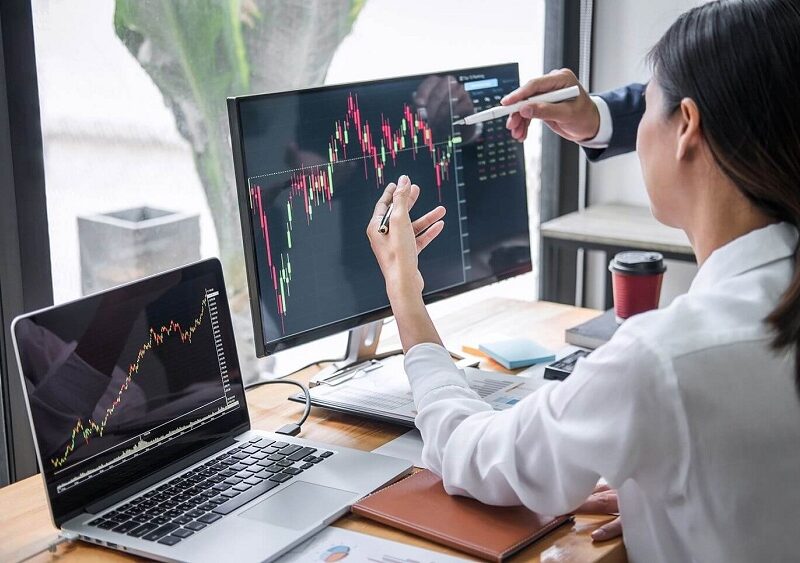Are you looking to venture into the world of trading? You may wonder which avenue is right for you—forex or commodity trading. Both can offer great rewards, but there are huge differences between them that could affect your success.
Before beginning either form of trading, you must understand precisely what forex and commodity investments involve, to make an informed decision as to which option will best suit your needs. In this article, we will look at the critical distinctions between these two types of investment so that you can decide whether forex or commodities will be more profitable for you in the long run.
Understanding forex and commodities
Understanding forex and commodities is essential for individuals eager to delve into trading these assets. Forex, short for foreign exchange, involves the buying and selling currencies. The forex market is the largest financial market in the world, with trillions of dollars traded daily. Commodity trading, on the other hand, involves buying and selling raw materials such as gold, oil, and coffee.
Understanding these financial terms requires significant knowledge and expertise in finance. Investors need to familiarise themselves with the fluctuations in exchange rates and commodity prices as these factors greatly influence the outcomes of their trades. With thorough research, proper guidance, and sound decision-making, traders in the financial landscape can potentially make successful trades when forex and commodity trading.
Comparing the characteristics of forex and commodity trading
One of the most significant differences between forex and commodity trading is the volatility of their markets. Forex markets are highly volatile, meaning that currency prices constantly fluctuate in response to various economic and political events. It creates opportunities for traders to make quick profits but carries a higher risk. Commodity markets, on the other hand, are known for their stability, as prices tend to remain relatively stable over time. It makes commodity trading a more reliable and less risky option for investors.
Another key difference is the level of liquidity in each market. Forex markets are highly liquid, with significant currencies bought and sold anytime. It means that traders can quickly enter and exit positions, making it easier to manage risk. Commodity markets have lower levels of liquidity, as the trading volume is not as high as in forex. It means there may be less opportunity to exit a position quickly and effectively, leading to potential losses for investors.
Examining the risk associated with each type of investment
Both forex and commodity trading carry risks that investors must consider before engaging in either market. In the forex market, the high volatility of currency prices can lead to significant gains or losses for traders. It makes it essential for traders to have a strong risk management strategy to minimise potential losses.
Commodity trading also carries risks, such as supply and demand fluctuations, weather patterns, and geopolitical factors. These can significantly influence the prices of commodities and potentially lead to losses for traders. However, with proper research and risk management techniques, investors can mitigate these risks and increase their chances of success in commodity trading.
Looking at how to choose the right market for your trading style
The decision to trade in forex or commodities ultimately depends on the individual’s trading style and risk appetite. For those who prefer a fast-paced, high-risk environment, forex may be the better option as it offers more opportunities for quick profits. However, this also means that traders must constantly monitor market movements and have a strong understanding of economic events that can impact currency prices.
On the other hand, those who prefer a more stable and less risky approach may opt for commodity trading. This type of trading requires less monitoring and allows for longer-term investments as commodity prices remain steady over time. Traders need to assess their own risk tolerance and trading style before deciding on which market to invest in.
Identifying the advantages and disadvantages of each type of trade
Both forex and commodity trading have their distinct advantages and disadvantages. In forex trading, high liquidity allows for easy entry and exit from positions, while a wide range of currency pairs offers traders numerous opportunities. Furthermore, the forex market’s fast-paced nature presents the potential for quick profits. However, it’s important to note that forex trading also entails a high level of risk and demands constant monitoring due to its susceptibility to external factors like economic or political events.
On the other hand, commodity trading provides stability and a more long-term approach to investing. This is because commodities, such as precious metals or agricultural products, have inherent value and tend to maintain their worth over time. With lower levels of risk, commodity trading can be an attractive option for those seeking a more conservative investment strategy.

